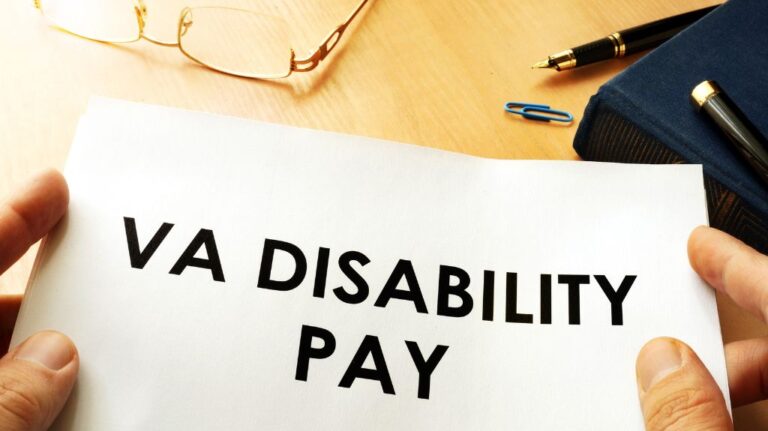Can a Divorced Spouse Get VA Benefits?
Divorce can be a challenging and life-altering experience, often accompanied by financial and emotional stress. For divorced spouses of military veterans, there may be an avenue of support through the Department of Veterans Affairs (VA) benefits. In this article, we will delve into the eligibility criteria, types of benefits available, and the application process for divorced spouses seeking VA benefits.
Eligibility Criteria
To qualify for VA benefits as a divorced spouse, several key criteria must generally be met:
- Length of Marriage: The marriage between the veteran and the spouse must have lasted for at least 10 years. This requirement is usually in place to ensure that the divorced spouse had a significant connection to the veteran’s military service. It’s essential to note that this requirement may vary for different types of benefits.
- Military Service: The veteran spouse must have served in the U.S. military, and the divorce must not have resulted from the spouse’s misconduct during military service. This criterion ensures that the veteran’s honorable service is recognized.
- No Remarriage: Typically, a divorced spouse seeking VA benefits should not have remarried after the divorce. However, there are exceptions to this rule, especially for certain benefits like Survivor’s Pension.
- Financial Eligibility: Some VA benefits are means-tested, meaning they are income and asset-based. The divorced spouse’s financial situation may be evaluated when determining eligibility for these benefits.

Types of VA Benefits for Divorced Spouses
The VA provides a range of benefits to eligible divorced spouses of veterans. These benefits can offer financial assistance and support, depending on the circumstances. Here are some of the key benefits available:
- Survivor’s Pension (Death Pension): This benefit provides financial assistance to low-income surviving spouses of deceased veterans. To be eligible, the marriage must have met the duration and military service criteria. Even if the veteran passed away after divorce, the divorced spouse may be eligible if they meet the requirements.
- Dependency and Indemnity Compensation (DIC): DIC is available to surviving spouses whose veteran spouse died as a result of a service-related injury or illness. In some cases, even if the divorce occurred, the surviving divorced spouse may qualify for DIC.
- Healthcare Benefits: Divorced spouses who meet the eligibility criteria may be able to access VA healthcare services, including hospital care, outpatient care, and prescription medications. This benefit can be crucial for those without other healthcare coverage.
- Education and Training Benefits: In certain cases, divorced spouses may be eligible for education and training benefits under the GI Bill. This can include access to education programs and financial assistance for pursuing higher education or job training.
- Home Loan Guaranty: If the veteran spouse has a VA home loan and the divorced spouse was awarded a share of the loan in the divorce decree, the divorced spouse may still be eligible for VA home loan guaranty benefits.
- Burial and Memorial Benefits: The VA provides burial benefits for veterans and, in some cases, their spouses. Divorced spouses may be eligible for burial in a VA national cemetery if certain conditions are met.
The Application Process
Applying for VA benefits as a divorced spouse involves a series of steps, and it’s essential to gather the required documentation before initiating the process. Here’s a general overview of the application process:
- Gather Documentation: Collect essential documents, including your marriage certificate, divorce decree, the veteran’s military service records (DD-214), and financial information if required for means-tested benefits.
- Determine Eligibility: Review the specific eligibility criteria for the benefit you’re seeking to ensure that you meet all the necessary requirements.
- Contact the VA: Reach out to your nearest VA office or contact the VA through their official website or helpline to initiate the application process. You can also seek assistance from veterans’ service organizations or legal experts who specialize in veterans’ benefits.
- Submit the Application: Complete the appropriate application forms and submit them along with the required documentation. The VA will review your application to determine eligibility.
- Attend Appointments: Depending on the benefit you’re applying for, you may need to attend interviews or provide additional information during the application process.
- Await Decision: The VA will evaluate your application and make a decision regarding your eligibility for benefits. This process can take some time, so patience is essential.
- Receive Benefits: If your application is approved, you will begin receiving the designated VA benefits. Be sure to keep the VA informed of any changes in your circumstances, as this can affect your eligibility.
Wrapping It Up
Divorced spouses of military veterans can access valuable VA benefits to help ease financial burdens and provide essential support. While eligibility criteria can be stringent, meeting these requirements can open the door to a range of benefits, including Survivor’s Pension, healthcare, education assistance, and more.
If you are a divorced spouse of a veteran and believe you may be eligible for VA benefits, it’s advisable to consult with the VA or seek assistance from veterans’ service organizations or legal experts who can guide you through the application process and ensure you receive the support you deserve. At VABenefitAttorneys.com, we can discuss your situation today.






